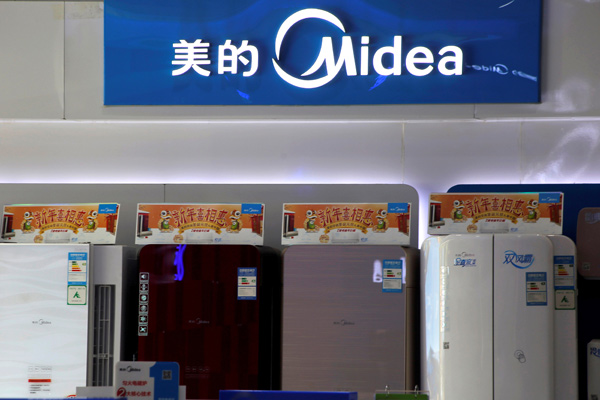China's 'lighthouse factories' boost quality manufacturing


HEFEI - At the end of a factory production line in eastern China, washing machines pass through a small white room one at a time, undergoing noise checks amid the roar of motors and blinking lights.
The factory in Anhui province belongs to Hefei Midea Laundry Appliance Co Ltd, and it makes use of the most advanced equipment available for checking machine noise. The intelligent voiceprint collector records the voiceprint of each washing machine, compares the sound waveforms and determines whether the operating noise meets the required standard.
"Combined with intelligent algorithms, the system can continuously self-learn the voiceprint to improve the accuracy of detection. If there is any abnormal noise, the system will give an alarm," said Wang Kankan, director of digitalization at Hefei Midea Laundry Appliance Co Ltd.
Through the application of intelligent inspection technologies such as voiceprint detection and AI vision, the defect rate of the company's products has dropped by 36 percent, according to Wang.
With smart devices in all production links, the factory has been selected by the World Economic Forum as a "lighthouse factory." At present, Midea Group, the Chinese home appliance giant, owns five such factories, including the one in Hefei.
With eye-catching tags such as high efficiency, intelligence and green, the lighthouse factories are considered to represent the highest level of global intelligent manufacturing.
According to the draft outline of the 14th Five-Year Plan (2021-2025) for national economic and social development, China will make the real economy the focus of economic development, accelerating the building of the country's strength in manufacturing and quality. As the basis of the real economy, the high-quality development of the manufacturing industry is also being given top priority.
The emergence of more "lighthouse factories" in China has added a strong footnote to the high-quality development of the country's manufacturing industry. According to the "lighthouse factories" list released at the World Economic Forum on Jan 13, there are now 50 such factories in China, the highest number of any country, making up more than one-third of the world's total.
As one of the latest batch of "lighthouse factories", Hefei Haier COSMO Intelligent Control Interconnected Factory has shortened the output time of its standard operating procedure (SOP) from 3-4 hours to less than 3 seconds by creating a "virtual IE engineer."
Tang Zhiqiang, general manager of the factory, said that the virtual engineer can make real-time adjustments according to the number of personnel and the changes in personnel working hours, selecting the best solution from thousands of combinations while increasing the efficiency by 30 percent.
Amid the country's steady progress toward its "dual carbon" goals, green transformation is also increasingly valued by Chinese companies.
In LCFC (Hefei) Electronics Technology Co Ltd, the largest intelligent computing devices R&D and manufacturing base of Chinese tech giant Lenovo, the use of advanced manufacturing technologies has greatly decreased energy consumption during the production of computer motherboards.
According to Xu Xiaohua, IMG SMT PU director of LCFC, by replacing the high-temperature solder paste with a low-temperature alternative, the peak welding temperature has been reduced by about 70 degrees, while the energy consumption of motherboard production has dropped by about 20 percent.
Xu said that the full application of low-temperature welding technology means LCFC can save more than 2 million kilowatt-hours of electricity every year, reducing carbon dioxide emissions by more than 1,160 tonnes, which is equivalent to planting 88,000 trees every year.
With "lighthouse factories" setting the trend, many provincial-level regional governments in China have released work plans to promote the intelligent and green transformation of the manufacturing industry.
According to data from the Ministry of Industry and Information Technology, by the end of 2022, China had built more than 2,100 high-level digital workshops and smart factories, boosting the production efficiency of smart manufacturing demonstration factories by 34.8 percent and reducing carbon emissions by 21.2 percent.




































